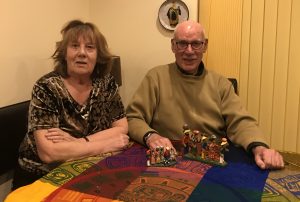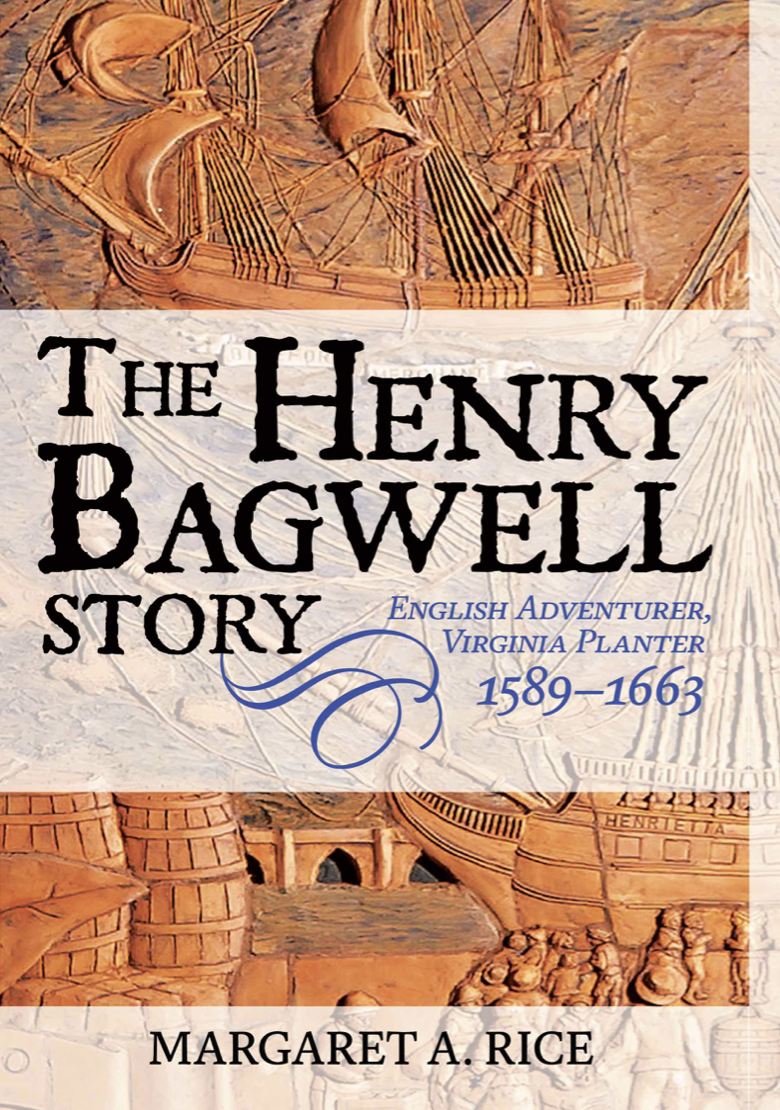Establishing English America: A Reminder of Putting COVID-19 in Its Place
After the outbreak of COVID-19, the pandemic set in.
And with that pandemic, the living generations simply ignored their past.
It has been and is a daunting experience hopefully living through COVID-19; but the simultaneous attack on Western culture and history nicely coincides with the pandemic so that we can lose site of the nature of the human condition which is struggle and challenges, not stasis.
This certainly was true for the English settlers coming to the United States.
Coming to Virginia and the Carolinas was not for the timid.
The odds were that if you did not die on the voyage, you would die in the new world, either from disease, starvation or Native American attacks.
It took a special type of person in a certain historical generation who would defy risks to found English colonies.
And in so doing, establish the practices and codes of conduct that would lead to the rule of law as a foundational element to the future American republic.
Even though the rule of law remains the bedrock of the American covenant, it is not difficult to see this bedrock under attack from “progressives” and others who wish to use the government to bend the rules in favor of whatever particular special group deserves privileges based on a favored asserted demand.
In her well researched book on one of the first voyagers to the New World, Henry Bagwell, Margaret A. Rice, provides a detailed look at his life and times.
She has done so through a copious examination of the historical records in both the United Kingdom and in the United States.
Bagwell is a relative of her family and her curiosity about her ancestry led to this book being written.
The story begins in the late 16th century and continues to the mid-17th century.
As the author notes in the conclusion to her book: “This story has followed his footsteps from England to Virginia, an epic voyage, with a storm, shipwreck, survival on an island, and subsequent arrival in Jamestown to his first home on the West and Shirley Plantation.
“From here he voyaged down the James River and across Chesapeake Bay to his permanent residence in Accomack, on Old Plantation Creek, on Virginia’s Eastern shore.”
As a resident of Virginia and North Carolina, there were many tidbits throughout the book of interest to me with regard to local history and the standing up of the first colonies in what would become the United States.
Despite the struggles to survive, the colonies rose and established a society based on the rule of law, which is no small accomplishment. Tobacco was the cash crop which allowed the colonies to begin to grow, and indeed many of the wills and transactions are written in Tobacco currency so to speak.
Bagwell was not an historical figure of note; but history is built by such folks who build out a society through thick and thin and build or rebuild the foundations for great civilizations.
The book from this point of view really captures the character of a certain type of United Kingdom citizens that built would become the United States of America.
I was going to say Englishmen, but my Irish and Scotch ancestors would have hammered me for that.
The project was introduced to me by my good friend and colleague, Dr. Kenneth Maxwell, who is Rice’s brother.
I look forward to the publication of the book and would highly recommend it to anyone interested in understanding the early years of English America and how that understanding can be gained through working through existing documents and artifacts from this early period of our history.

One of the interesting sidelights in the book is highlighting how in this period of history, the small number of blacks in Virginia were treated similarly to the white indentured servants.
Both were treated as property of the landowner and willed as such.
So much for 1619.
And the starvation period was highlighted as well by this quote from Captain John Smith in 1609: “One amongst the rest did kill his wife, powdered (salted) her and eaten part of her before it was knowne; for which hee was executed, as well he deserved: now whether shee was better roasted, boyled or carbonado’d (i.e., grilled I know not.”
Tough times; tough generation.
On Bagwell’s voyage to Jamestown, they took a new sea route which led them to be shipwrecked on Bermuda.
As there were no fast food stores yet, they had to survive, eat, shelter and rebuild two ships from the shipwreck of their own ship and what they could find on the island and 10 months later arrived in Jamestown.
Not sure many Americans today could figure out what to do in such circumstances, where they would have to fish and hunt to eat; have to build with whatever tools they could find; manage difficult human relationships without an ability to reach out to their social groups on facebook, or to work together to relaunch ships to get to the Jamestown colony.
And upon arrival, find that colony is disrepair and disarray.
I think we should put COVID-19 definitely in historical perspective.
Professor Kenneth Maxwell provided his insights with regard to the book as follows:
Under the surface of “official” history lies the vast spiderweb of “private” histories of individuals and of families. Sometimes these histories intersect as they do here and in unsuspected ways in this exploration of the intimate history of Henry Bagwell. There are moments of connection across time and space and continents. This is such a critical moment of connection in the history of early Stuart England and early Virginia, and hence of what was to become later on the history of the United States of America.
Henry Bagwell might well have been forgotten but for the persistent and forensic explorations of Margaret Ann Rice into the family history of our grandmother Mary Ann Hearn Chapple, who was the link to this fascinating 16th and early 17th century story of one man’s enterprise, adventure, shipwreck, survival, and of his settlement and consolidation of family life in a new transatlantic land. Henry Bagwell was a pioneer in many ways and he was the observer and participated in great events. He was as Margaret Rice shows a most remarkable, literate, and dogged survivor.
This is also an “intimate” history at its best.
This is truly a history from the “bottom up.”
We are admitted here to the everyday life of Bagwell family in Exeter, Devon, in the southwest of England, where Margaret Rice has used the remarkable local archives to reconstruct the households and the economic and social interests of the Chappell and Bagwell family. We see the beds they slept in, the utensils they used, and the configuration of the actual houses they lived in, which remarkably still exist today on the high street of the city of Exeter.
We are admitted then via wills and probate records into the actual household goods of Henry Bagwell’s family on the eastern shore of Virginia over twenty years later where Henry Bagwell was the clerk to the local court, and tobacco inspector, and a member of the Virginia House of Burgesses, the first representative body in North America.
Henry Bagwell participated in great events and remarkably the trajectory of his life ran parallel with a founding moment of American history.
From Exeter, to Bermuda, to Jamestown, Virginia, to the Eastern Shore of Virginia we follow the Henry Bagwell story in these pages.
Margaret Rice never losses sight of the broader context.
This is history at its best and at its most revealing, and it stands at the historical connection between the intimate history of family and the wider world.
This book draws together the intricate web of the history of ordinary families over time and between continents that joins our world to the past.
Kenneth Maxwell was professor of history at Harvard University and is the founder of the Brazil Studies Program at Harvard’s David Rockefeller Center for Latin American studies.

